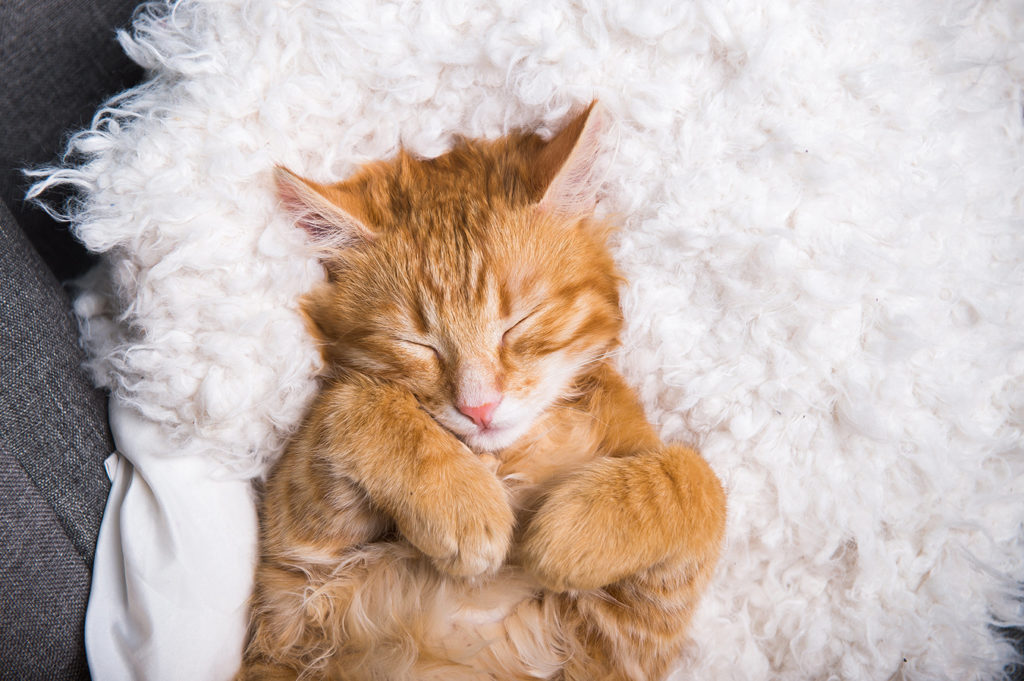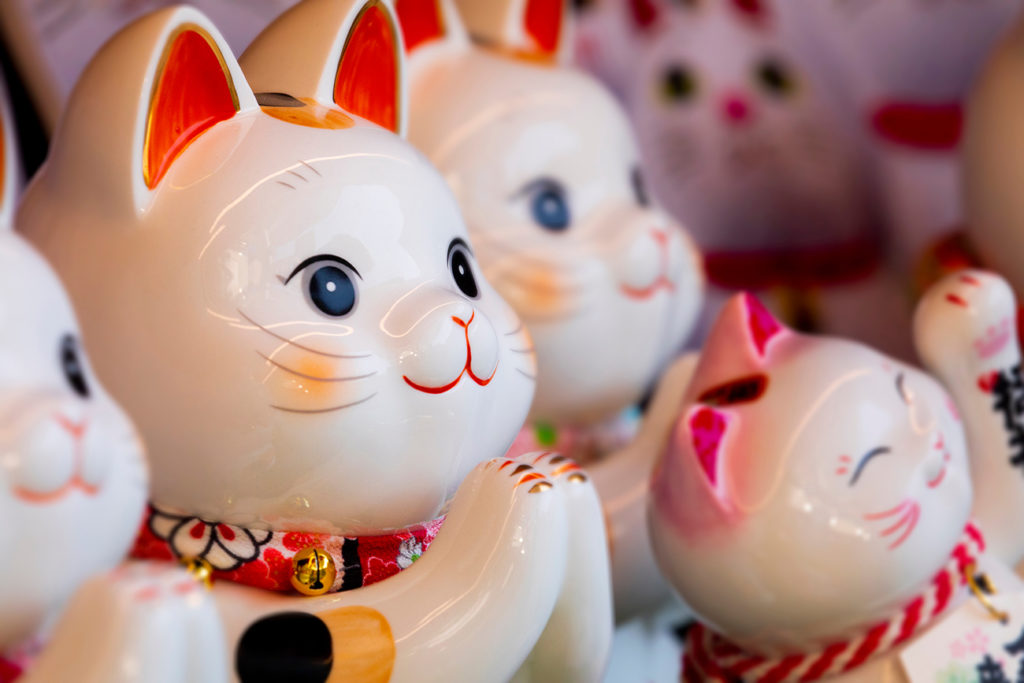
Cats in Japanese Culture and History
Cats are often the stuff of legend–they embody mysticism. It is no wonder that cats have been culturally significant for many nations. Their relationship with and influence on humans is as old as civilization itself and can be traced back to over 9,500 years.
In Japan, cats are revered for giving good luck and other positive results. The popular Japanese cat figurine maneki-neko (招き猫, “beckoning cat”) is typically believed to bring such blessings. The figurine is often of a cat with its paw in an upright position as if beckoning.
Japanese lucky cat.
According to one Japanese legend, a lord was seeking shelter under a tree during a storm when he saw a cat waving its paw at him. Intrigued by this gesture, he walked towards the cat when suddenly a lightning bolt struck the exact place where he was previously standing. The lord believed that his good fortune was because of the cat’s actions. Hence, the beckoning hand became a symbol of good luck.
Maneki-neko are mostly found at the entrance of shops, restaurants, and other business establishments. They can serve as other more useful and portable things such as keychains and piggy banks.
Japan’s history indicates that cats have played an important role in Japanese culture and society, such as seen in the number of shrines and temples dedicated to cats in the country. Here are some of them.
Cat in Imado shrine.
Nambujinja – located in Nagaoka, Niigata Prefecture, a mythical cat-like creature known in Japanese folktales is revered at this temple. Local residents are confident that cats will always keep harmful rodents away.
Konoshimajinja – in Kyotango City, Kyoto, a statue of a cat with its paw protectively on its kitten’s head greets people who enter the city.
Kyoto, Japan’s former capital, originally was the center of high culture and aristocracy. The city was home to prominent silk producers who believed that cats kept the number of rats to a minimum and enabled them to work continuously to produce the finest silk possible.
Nekojinja – literally means Cat Shrine. Fishermen from the island of Tashirojima in Miyagi Prefecture are said to be able to predict how big a catch they would get from observing the behavior of the many cats on the island.
Check out our video!


